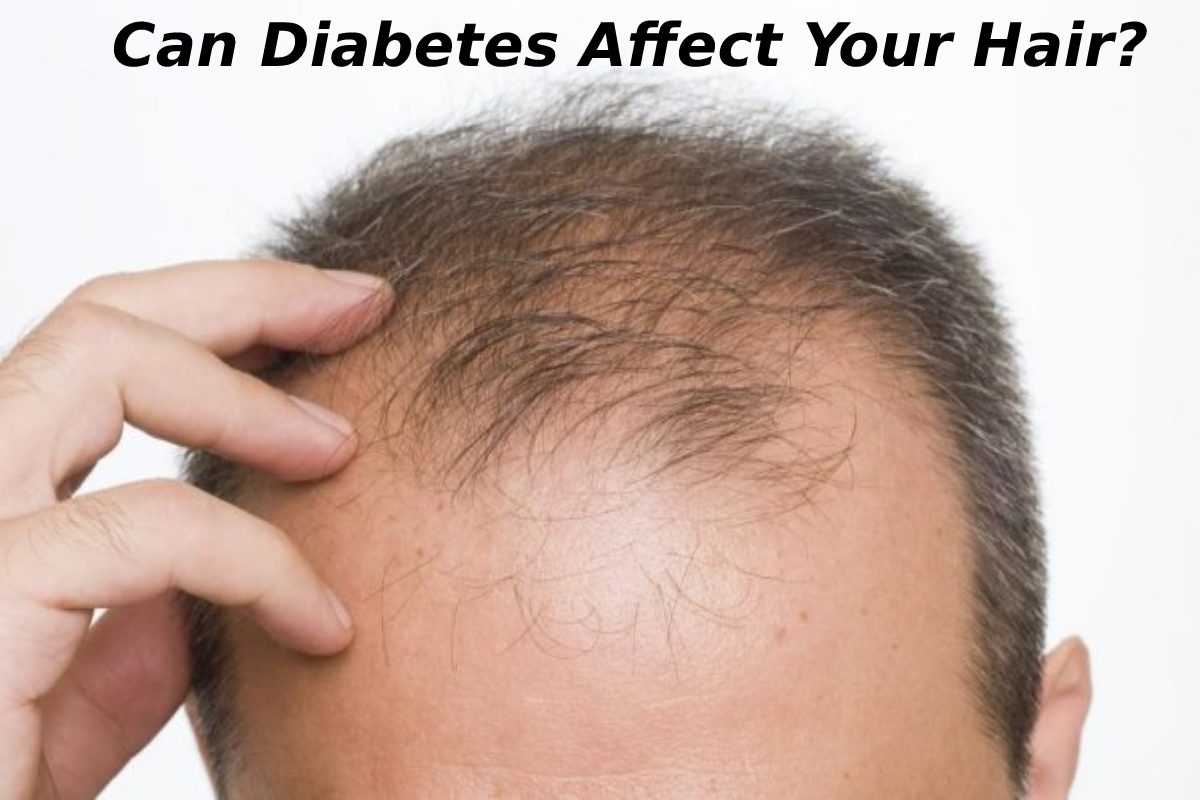Diabetes Affect Your Hair – Have you recently obtained a diabetes diagnosis? It is a condition that gradually deteriorates your limbs. One of them is hair. One of the signs of diabetes is excessive hair loss. However, it is still necessary to investigate whether this condition is a factor in your hair loss.
Table of Contents
Hair growth Phase with diabetes
If you have diabetes, your body either does not generate insulin or does not use it well. Insulin is a hormone that transports sugar from the meals you eat into your cells to be stored or utilized as energy.
let’s discuss one of the important factors of hair loss. Sometimes you don’t have insulin in your blood and it may not be used effectively. At that time sugar build up in your blood. That excess sugar can damage organs including your eyes, nerves, kidneys, and blood vessels. These blood vessels carry oxygen around your body. In this way, the organs and tissues get nutrition from the body.
But damaged blood vessels cannot provide enough oxygen to nourish your hair follicles. This shortage of oxygen might have an impact on your typical hair growth cycle. The immune system targets the hair follicles in alopecia, causing hair loss patches on the head and other areas of the body. For these reasons, hair can fall out if you have diabetes.
How Diabetes might al Diabetes Affect Your Hair?
Type 1 diabetes is an autoimmune disorder in which the immune system assaults the pancreatic cells that produce insulin.
Unfortunately, this kind of diabetes is sometimes accompanied by other immunological disorders. This illness causes your hair to fall out in huge coin-shaped areas. Minimize your exposure to pollutants, eat a nutritious diet low in sugar and trans fats to reduce autoimmune reactions.
Non-Surgical Hair Restoration
Today, there are several nonsurgical hair restoration techniques accessible. Your doctor may advise you on non-surgical choices such as medicines, laser treatments, and scalp injections. There are also cosmetic cover-ups that do not require a prescription. Keep in mind that those are temporary, terminating when you wash your hair.
There are some types of non-surgical hair restoration. One of them is PRP (Platelet-Rich Plasma) therapy. PRP therapy injects platelets from the client’s blood sample into the scalp.
Non-surgical hair growth treatment
There are many non-prescription products that can hide thin hairs. At the same time, it gives a short-term solution to improve your appearance. These products must apply to the skin or hair. These are available in different colors to match your natural hair color and provide hair fullness.
Scalp Micropigmentation is the safest and most natural long-term solution of hair restoration. It improves the appearance of your hair. Individuals seeking nonsurgical hair restoration may find this to be an option.
The most significant aspect of non-surgical hair restoration is the use of medications and a balanced diet. A variety of vitamins and minerals can aid in hair growth. Meanwhile, for genetic hair loss, DHT-blocking medications can help prevent further hair loss.
A balanced diet is essential for avoiding hair loss and boosting hair growth. Nutritional advice for good hair includes not missing breakfast, staying hydrated, getting adequate protein, eating iron-rich meals, adding vitamins and minerals in your diet, avoiding dairy products, and so on.
Advantages
Non-surgical hair replacement is a viable alternative for anyone experiencing any amount of hair loss. Furthermore, this therapy is the finest option for regrowing hair and improving its appearance.
The outcome is fast. With non-surgical hair replacement, you may have a full head of hair in just four weeks. Furthermore, it is less costly than a hair transplant or surgery.
You will not feel any discomfort. One of its benefits is that it does not require an incision which is the best part of the nonsurgical hair restoration.
Summary
Your hair loss may have been due to diabetes. Diabetes can disrupt the hair development process, slowing it down. Diabetes might also cause you to lose more hair than you normally expect. In this case, you must be careful and keep in control of diabetes. At the same time, you may have to change your food, lifestyle, or medicine to improve your blood sugar management. If you maintain your lifestyle accordingly, you will lose less hair and get more hair back.


